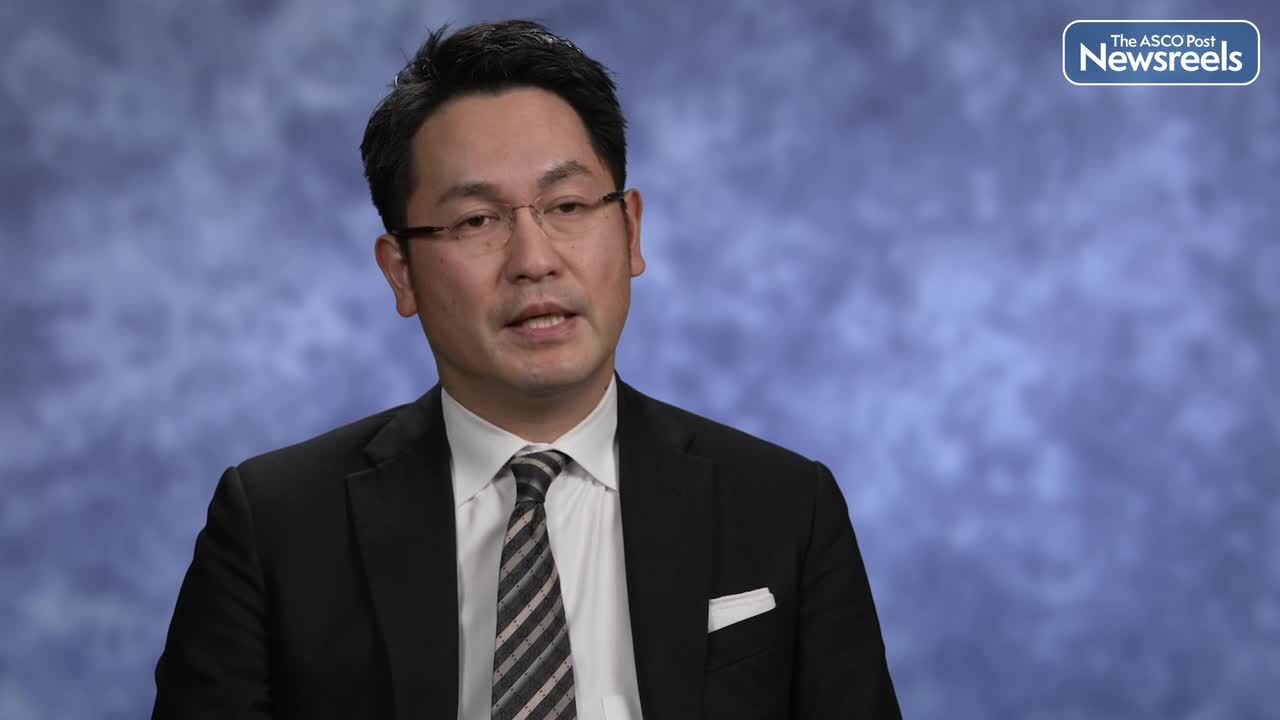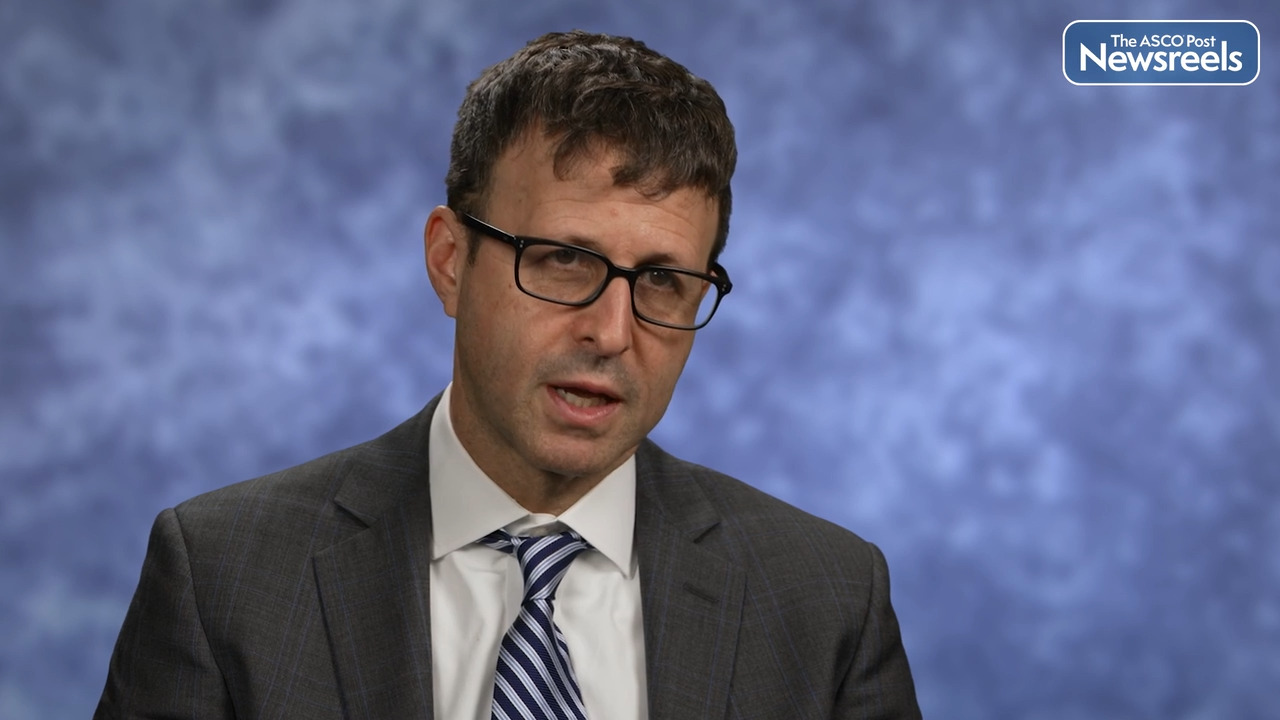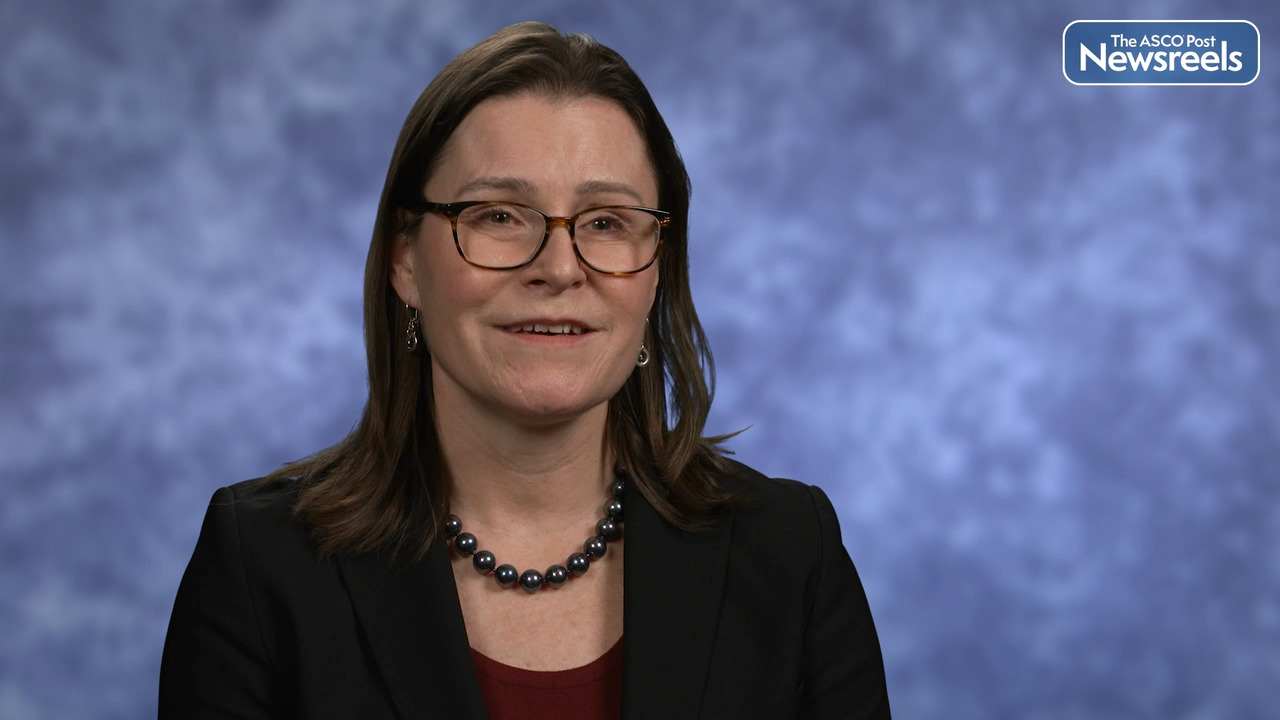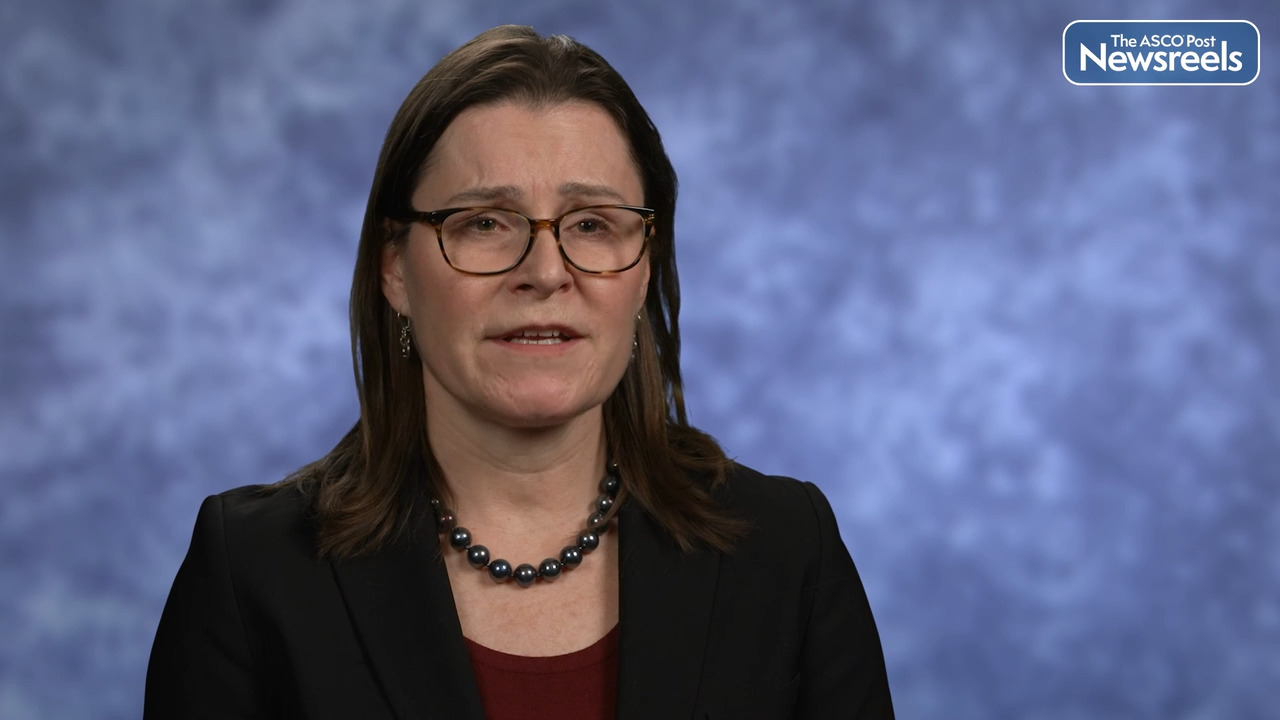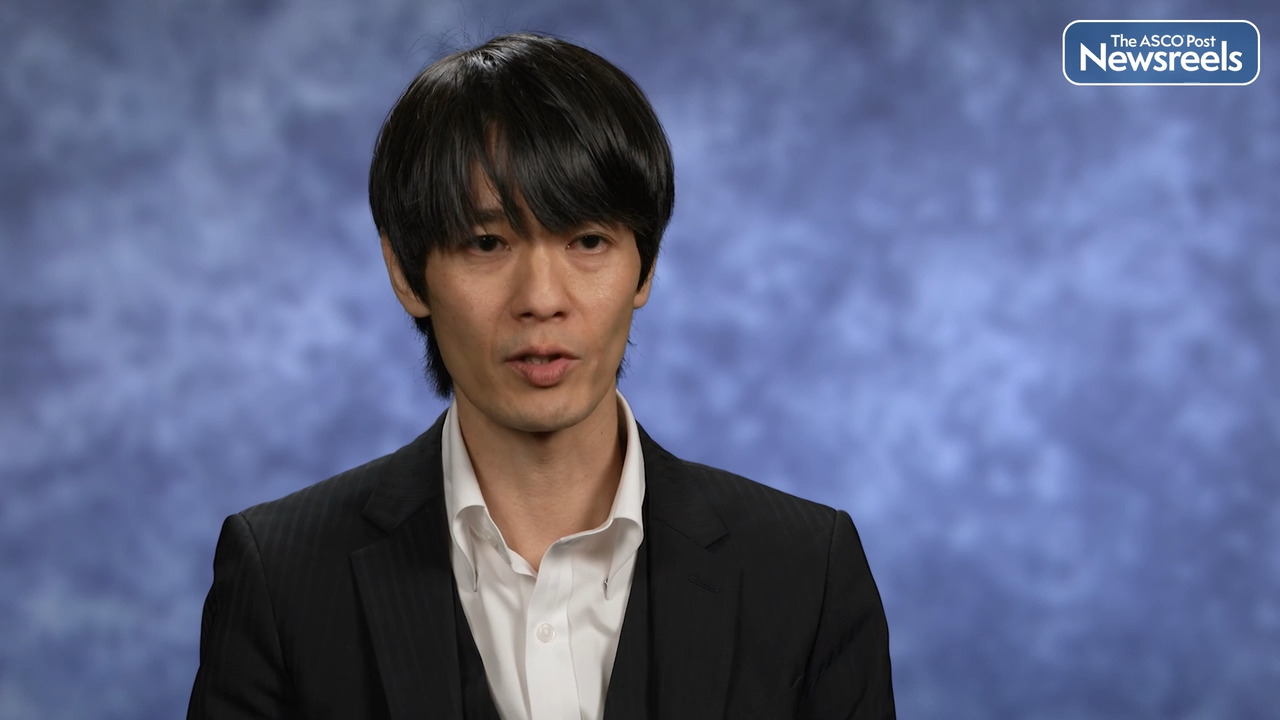Transcript
Disclaimer: This video transcript has not been proofread or edited and may contain errors.
The INTEGRATE II clinical trial was a randomized double-blind placebo control trial evaluating the effect of Regorafenib versus placebo on overall survival in patients with advanced gastric and gastroesophageal junction cancer. It followed on from the phase two INTEGRATE trial, which demonstrated progression-free survival with Regorafenib. The study was conducted to see if Regorafenib improved overall survival. It enrolled patients who'd failed at least two lines of prior therapy with a platinum and fluoropyrimidine analog necessary who were of fitness, ECOG zero to one and who had advanced gastric and gastroesophageal junction cancer. It was a multi-center international study led by the Australasian Gastrointestinal Trials group. The study was conducted over several years and during the conduct of the study, the evolution of new evidence developed in gastric cancer, such as the findings of LONSURF being active in refractory disease and immunotherapy with nivolumab, as well as the promising activity of Regorafenib nivolumab combination called REGONIVO.
So we turn the study into a platform study, continued to evaluate Regorafenib placebo and also undertook the INTEGRATE IIb study, which I'll finish on and describe. The study enrolled 251 patients. The statistical plan was to look at the pooled analysis first of the INTEGRATE phase two and phase three, studied together, and then look at INTEGRATE IIa alone. The hazard ratio for overall survival was 0.7 in favor of Regorafenib in the pooled analysis and 0.68 in favor of Regorafenib in the standalone INTEGRATE IIa study. The value of Regorafenib in improving survival was best seen in the landmark 12 months survival, which was 19% for Regorafenib versus 6% for placebo. Regorafenib was also shown to prolong progression-free survival and delay deterioration in global quality of life, all in favor of Regorafenib. The toxicity observed was similar to that previously reported and also within our phase two study and within the spectrum of toxicities previously noted for Regorafenib and there were mostly grade one and two toxicities that were manageable.
So in conclusion, the INTEGRATE IIa study demonstrated that Regorafenib in patients refractory to chemotherapy, some of whom have been previously treated with immune checkpoint inhibitors and VGF inhibitors, did prolong survival in addition to progression-free survival and delay deterioration in global quality of life. The evidence is best observed in terms of patient benefit by the 19% survival finding at one year versus 6% for placebo. So we think this study offers a new option for patients with refractory advanced gastric and gastroesophageal junction cancer. We also thought it formed a platform for combination therapy and we've taken the REGONIVO combination now into the INTEGRATE IIb study, which is evaluating Regorafenib and nivolumab combined in versus chemotherapy in patients who have failed at least two lines of prior chemotherapy.
The INTEGRATE II clinical trial was a randomized double-blind placebo control trial evaluating the effect of Regorafenib versus placebo on overall survival in patients with advanced gastric and gastroesophageal junction cancer. It followed on from the phase two INTEGRATE trial, which demonstrated progression-free survival with Regorafenib. The study was conducted to see if Regorafenib improved overall survival. It enrolled patients who'd failed at least two lines of prior therapy with a platinum and fluoropyrimidine analog necessary who were of fitness, ECOG zero to one and who had advanced gastric and gastroesophageal junction cancer. It was a multi-center international study led by the Australasian Gastrointestinal Trials group. The study was conducted over several years and during the conduct of the study, the evolution of new evidence developed in gastric cancer, such as the findings of LONSURF being active in refractory disease and immunotherapy with nivolumab, as well as the promising activity of Regorafenib nivolumab combination called REGONIVO.
So we turn the study into a platform study, continued to evaluate Regorafenib placebo and also undertook the INTEGRATE IIb study, which I'll finish on and describe. The study enrolled 251 patients. The statistical plan was to look at the pooled analysis first of the INTEGRATE phase two and phase three, studied together, and then look at INTEGRATE IIa alone. The hazard ratio for overall survival was 0.7 in favor of Regorafenib in the pooled analysis and 0.68 in favor of Regorafenib in the standalone INTEGRATE IIa study. The value of Regorafenib in improving survival was best seen in the landmark 12 months survival, which was 19% for Regorafenib versus 6% for placebo. Regorafenib was also shown to prolong progression-free survival and delay deterioration in global quality of life, all in favor of Regorafenib. The toxicity observed was similar to that previously reported and also within our phase two study and within the spectrum of toxicities previously noted for Regorafenib and there were mostly grade one and two toxicities that were manageable.
So in conclusion, the INTEGRATE IIa study demonstrated that Regorafenib in patients refractory to chemotherapy, some of whom have been previously treated with immune checkpoint inhibitors and VGF inhibitors, did prolong survival in addition to progression-free survival and delay deterioration in global quality of life. The evidence is best observed in terms of patient benefit by the 19% survival finding at one year versus 6% for placebo. So we think this study offers a new option for patients with refractory advanced gastric and gastroesophageal junction cancer. We also thought it formed a platform for combination therapy and we've taken the REGONIVO combination now into the INTEGRATE IIb study, which is evaluating Regorafenib and nivolumab combined in versus chemotherapy in patients who have failed at least two lines of prior chemotherapy.
